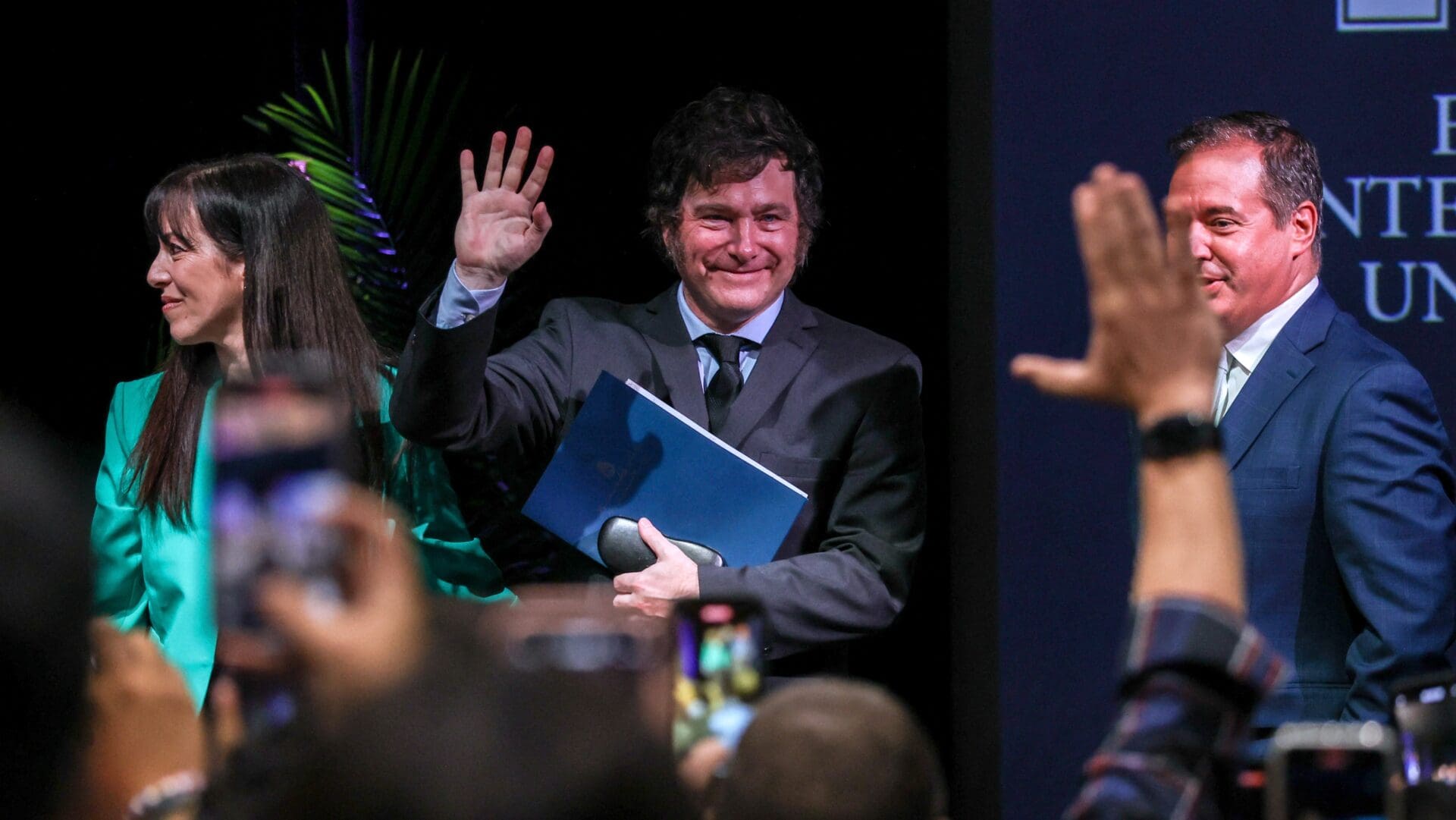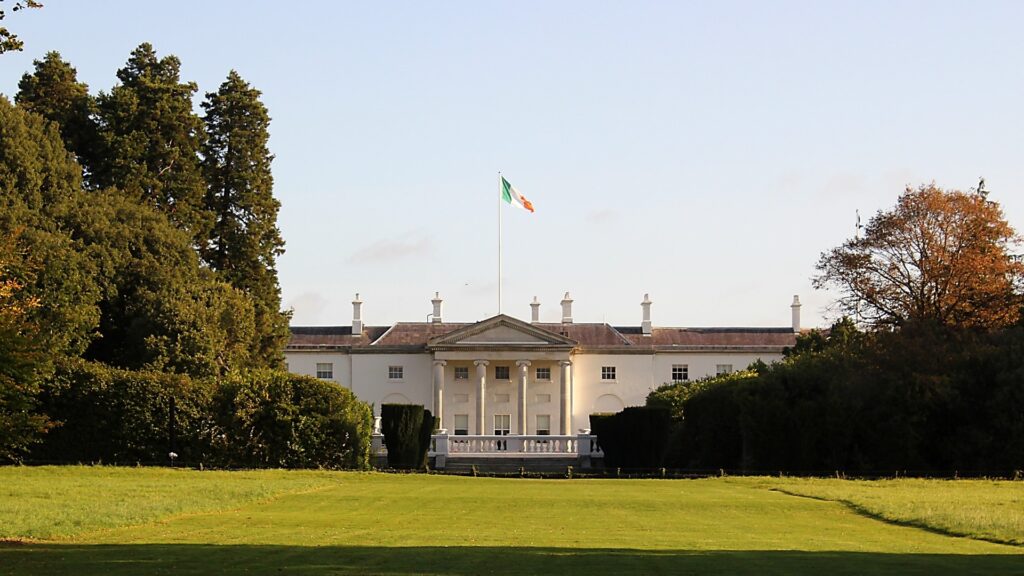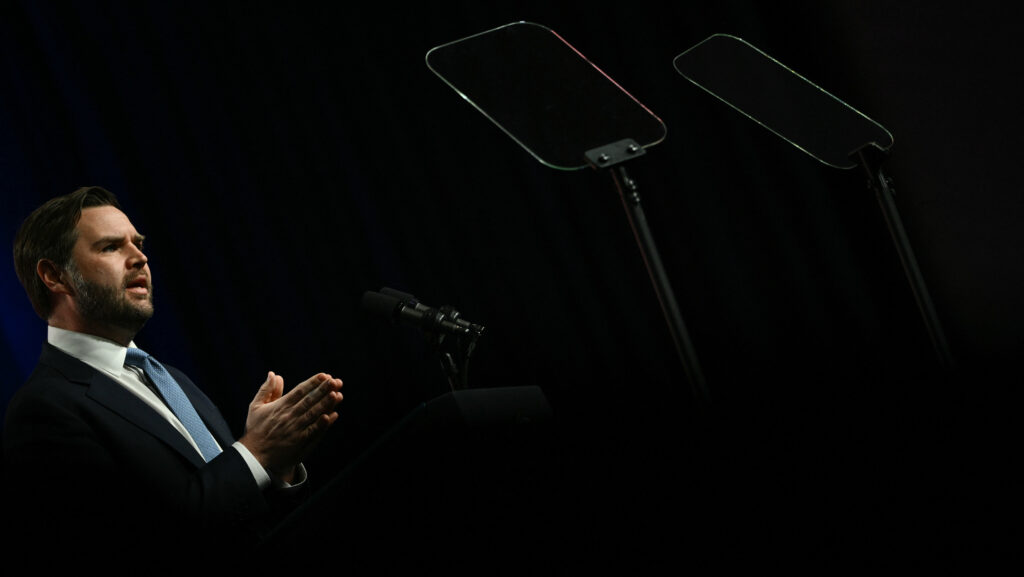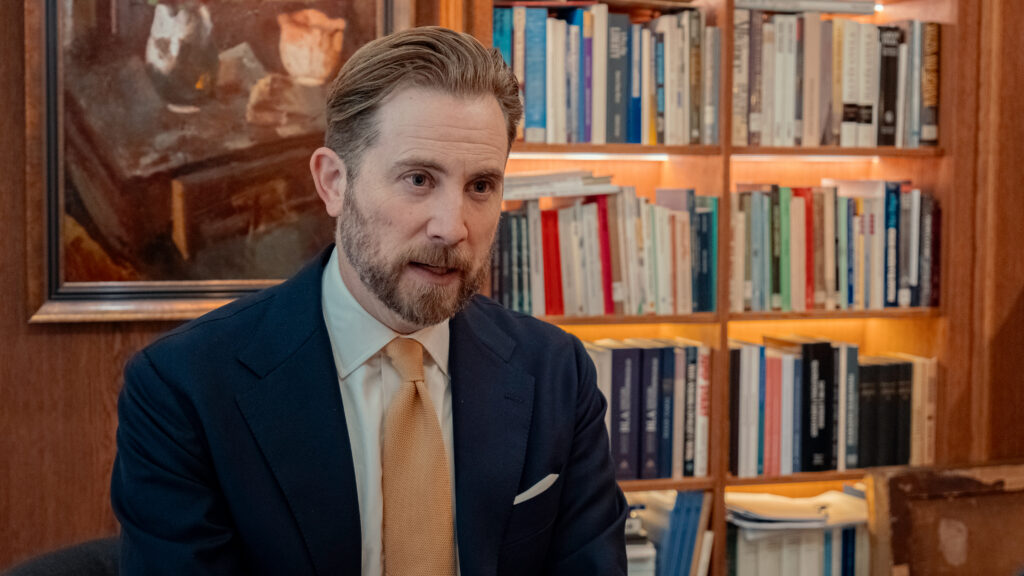Javier Milei’s rise baffled many political analysts across the spectrum. While he does not belong to the political left, he considers himself primarily a libertarian economist. This article seeks to explain the roots of his conservative thinking and how this libertarianism links him directly to conservative ideological stances.
Argentine President Javier Milei dynamized Argentine political life in mere months despite regular protests against his policies and the relative lack of legislative and administrative positions in his party. His radical political decisions have led to various ideological characterizations: foremost, he is called an authoritarian and a ‘fascist’ by many on the left or labelled with the umbrella term ‘populist’ by moderate analysts. Many tried to draw parallels between his government and the military regimes of the past by highlighting every possible and extant personal or professional connection with the military officers of the juntas. Of course, these classifications are oversimplified. Apart from Milei’s insistence that the bloodiest Argentine dictatorship, the regime of Jorge Videla between 1976 and 1982, claimed fewer victims than is generally estimated, there is nothing concrete in Milei’s thinking that evokes the murderous regimes of the past. These were, in any case, rather heterodox ideological formations, which are not easily included among the classic ‘conservative’ groups.
Another question is if Milei is a conservative, what kind of conservative is he?
Argentina, from its birth, is naturally a country of republican traditions. Given the relatively short lifespan of the country and its heterogeneous ethnic background, there is less talk of deep national traditions. The tradition to which Milei refers is twofold: first, the pre-1916 world of Argentina, from which he considers Argentine political history to have been a ‘collectivist experiment’, a dead end, a mistake. This is an attempt to create a really ‘Argentine’ brand of traditionalism, one that appeals to classical liberalism. While this ideology was originally not close to conservative groups, today, it is almost a ‘natural’ ally of conservatism in rejecting post-modern progressive politics. This first element of his traditionalism is more of a hybrid form of conservatism, one that is more of an ally of contemporary right-wing ideologies.
The second is a classic example of invoking Latin American conservative tradition: appealing to the generally understood Western civilization as the essence of Argentine identity. Like other regions on the periphery and semi-periphery of the West, an essential question of Latin America is the civilizational identity of the continent. In Latin America, conservatives unequivocally define the continent within the sphere of Western civilization. The attraction to Western civilization provides them with an ideological basis for promoting traditional values. In addition, the pro-Western thought in Latin America is also strongly connected to the rejection of left-wing pretensions of anti-colonialism that pose the former colonizer West as the cause of the underdevelopment of the continent. In rejecting anti-colonialism, Milei finds a partner in Iberian conservatism—his vice-president, Victoria Villaruel, has been close to the Spanish Vox for years.
Of course, the Western orientation of Latin American conservatives poses more questions than answers. Is the West an imaginary space for traditional values, or is it appropriate in its contemporary form? What does it mean for the geopolitical alignment of the country in question? Milei answers this issue by criticizing the West, especially its woke ideological traits. That said, he is also clearly aligning himself with the Western-driven geopolitical order, steering away from BRICS cooperation and much closer to the West, as evidenced by his F-16 fighter jet deal, the first major US arms deal in decades. It is a distinctly pro-status quo version of Latin American conservatism, but not markedly different from other versions.
The fact that he is leaning toward the pro-status quo stance can also be explained by the sensitive case of the Malvinas/Falklands Islands. The territorial claim toward the British-ruled islands is a bipartisan issue, a mainstay of Argentine nationalism. Naturally, an Argentine conservative politician of any sort cannot evade the question of the border dispute. Milei thus positions his ideological approach as a solution to the conflict by allying with the Western world. The apparent alliance with the Western powers could be strengthened through the aforementioned arms transfers and could also garner goodwill for a subsequent settlement of the island’s status.
But how did this classic Latin American conservatism come to Milei? He considers himself primarily a libertarian, an ideological strain more in line with the promotion of unfettered capitalism, pro-market policies, and the denouncement of shared societal values.
The hybridization of Milei’s thinking is, in his view, precisely the result of the fact that he has come to power.
In every radical ideology, defining the final political and ideological goals is just one step in the process. There needs to be an effective way to govern and organize a political movement so that the historical direction of a society can be changed in the desired way. Milei’s pragmatic stance is what he calls ‘minarchism’: not the complete dismantling of the state, according to pure libertarian recipes, but its minimization. It is a pragmatic approach to libertarianism: using the state to promote libertarian values.
Milei can be described as a ‘paleolibertarian’, a term popularized by a libertarian, Murray Rothbard, who was also respected by the Argentine president himself. Throughout his life, the American thinker experimented with political coalitions across the spectrum, but by the late 1980s, he had agreed to ally libertarianism with conservatism. He was among the first to characterize ‘big business’—the big capitalist firms—as aligned with left-wing, collectivist ideologies, and not on the side of genuine free-market ideologies. He stated that libertarians, on the other hand, should ally themselves with conservatives, as their values help build a society where true meritocracy and free market values can prevail. In this sense, Rothbard prescribes a certain level of ‘social engineering’ in society, changing the core values of communities in order to build something new, but at the same time leading them back to the world of traditional values.
With this in mind, Milei is trying to build both a libertarian and a conservative society. In this hybridization and by stressing the need for pragmatic decisions, he argues, for example, for the retention of the many welfare programmes introduced in recent decades, especially under the Kirchner–Fernandez governments, which have dominated Argentine politics for most of the previous two decades. In this, he shows a pragmatic approach instead of merely following libertarian prescriptions. His centralization efforts are clearly an attempt to pragmatically enhance his power instead of weakening the power of the central administration, by which
he confronts a paradox that needs to be fought by conservatives all across the continent.
In many countries, including Argentina, there is a deep tradition—to use the term favoured by Milei and his circle—of ‘collectivist’ ideologies and practices across the whole of society and politics. In this environment, Milei’s approach must be radical and centralizing, as the traditional, partially decentralized system clearly promotes an ideology and political environment that is at odds with conservative and libertarian values.
In summary, Milei is indeed a conservative, in a pragmatic and very Latin American way. He uses conservatism as a political vehicle toward libertarianism and as an allied ideology to create a new society that brings back old, conservative values. His conservatism is also a ‘disruptor’ ideology, emphasizing the renewal of Argentina after more than a century of failed ‘collectivist’ political projects, and in this sense, making his conservatism a radically ‘new‘ political project. He is a Western-oriented politician, like many other Latin American conservatives, but at least passively content with the Western-led international order. This could help him secure his influence with Argentines who see the Malvinas issue as a priority. Milei’s conservatism is a heterogeneous one, carrying with itself a lot of proposals for national questions, building on local and regional traditions, but also creating something entirely new in the world of South American politics.
Related articles:








